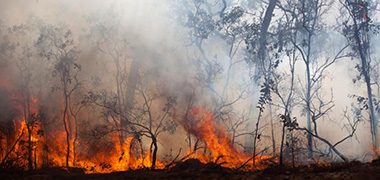
This role has a moderate level of AI exposure. AI can enhance efficiency for some tasks, but this job still relies on human skills and decision-making.
Explore all careersA Geoscientist studies the Earth's physical aspects, analysing data on its structure and processes to aid in resource management and environmental protection.
Get qualified to work as a Geoscientist with a course recognised across Australia. Speak to a training provider to learn more.

Browse occupations related to Geoscientist



Are you looking to advance your career in geology or related fields? The Geoscientist courses in Blue Mountains provide a comprehensive pathway for individuals keen on specialising in earth sciences. With only one exceptional course available, the Bachelor of Advanced Science (Honours) in Earth Science equips students with advanced knowledge essential for understanding our planet's processes. Offered by UNSW, this course stands out as a robust qualification for experienced learners with prior qualifications or experience in the field.
Located in the picturesque Blue Mountains region, this course not only attracts local students but also individuals from surrounding areas eager to delve into the mysteries of the earth. Pursuing a Geoscientist qualification opens a range of career opportunities. Graduates may consider roles such as a Geophysicist, Hydrologist, or Geologist, each contributing vital expertise to environmental and resource management. With the scenic backdrop of the Blue Mountains, students have the unique opportunity to study geological formations in an inspiring setting.
As a Geoscientist, you will explore various aspects of Earth Science, including fields like Earth Science, where you can gain skills applicable in multiple industries. Other related roles include Hydrogeologist, Geochemist, and even Palaeontologist. Each of these professions plays a critical role in understanding geological systems and phenomena, with a solid educational foundation being essential for success.
The landscape in the Blue Mountains not only serves as a perfect lecture hall but also provides hands-on experience in geoscience. Participating in a Earth Scientist role allows professionals to evaluate natural resources and contribute to sustainable environmental practices. Similarly, positions such as Physical Scientist and GIS Specialist are pivotal in analysing spatial data and modelling earth processes, further illustrating the diversity within the geoscience field.
Ultimately, taking Geoscientist courses in Blue Mountains is a strategic step for anyone passionate about the environment and seeking meaningful work in the science sector. With the support of esteemed institutions like UNSW, students are not only prepared to enter the workforce but also to make significant contributions to both local and global environmental challenges. Explore this unique opportunity in a stunning location and build a fulfilling career in earth sciences today!